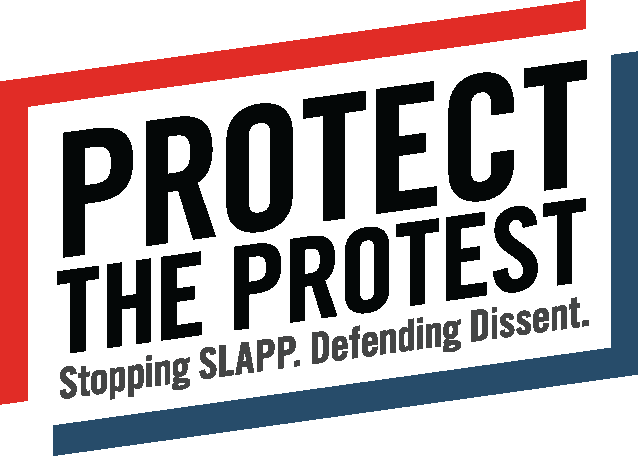
SLAPP 101
What is a SLAPP
“Strategic Lawsuits Against Public Participation” (SLAPPs) are a dangerous legal tactic used by those in power to silence their critics. SLAPPs masquerade as ordinary civil lawsuits, but their true purpose is to retaliate against those who speak truth to power.
A SLAPP does not even need to be successful in court to have its intended effect. It can take years for a court to dismiss a SLAPP, no matter how bogus the claims. Years of litigation can take a toll on the defendant’s finances, reputation, and morale. In many cases, SLAPP bullies hope that the defendant will settle the case, agreeing to remain silent in exchange for ending the litigation.
How to spot a SLAPP
SLAPPs are usually wrapped in complicated legal language and disguised as legitimate defamation cases or other personal injury lawsuits. No one ever admits to filing a SLAPP, but it is possible to distinguish a SLAPP from an ordinary civil lawsuit.
SLAPPs generally have one or more telltale signs:
Nature of the defendant: SLAPPs often target activists, nonprofit organizations, journalists, media organizations, and concerned citizens who speak up about a matter of public concern.
Track record of the plaintiff: Certain individuals, companies, and law firms have a track record of repeatedly using SLAPPs and other judicial harassment tactics against their critics.
Nature of the activity targeted: SLAPPs often accuse the defendant of a “wrongful activity” that is actually an activity protected by the First Amendment of the U.S. Constitution, such as free speech, journalism, or nonviolent protest. Often, accusations frame the speech as defamation, or part of a conspiracy in order to make it seem more nefarious.
Power imbalance between the parties: SLAPPs often occur when the plaintiff has significantly more resources for a legal battle than the defendant.
Disproportionate claims of damages: SLAPP filers often seek disproportionately high damages from the defendant to “send a message,” even if they do not have evidence to show that they suffered any harm.
Use of the litigation process itself to punish the defendant: Litigation is often costly and psychologically stressful. Legitimate plaintiffs typically want to conclude their cases as quickly and efficiently as possible because their goal is to win their case. Many SLAPP filers, however, take advantage of the stresses of this process to drag out the case as long as possible, drive up costs for the defendant, embarrass the defendant in public, or bankrupt the defendant.
Attempts to create a broader chilling effect: SLAPP filers often try to use a lawsuit to send a message to a broader community of people by naming multiple people who are only loosely connected to the alleged wrongdoing as defendants, sending subpoenas to a wide range of people involved in a network or community, or singling out members of the community who are most vulnerable to intimidation due to their personal circumstances.
Democracy needs dissent
Democracy works best when all people have the ability to contribute to public debates, voice their opinions, and advocate for their communities’ interests. In the United States, we have the constitutional right to speak freely on issues of public concern, protest peacefully, and petition the government. But we cannot take those rights for granted. In the United States and across the world, the powerful are turning the law into a weapon to silence their critics and trample on people’s rights
